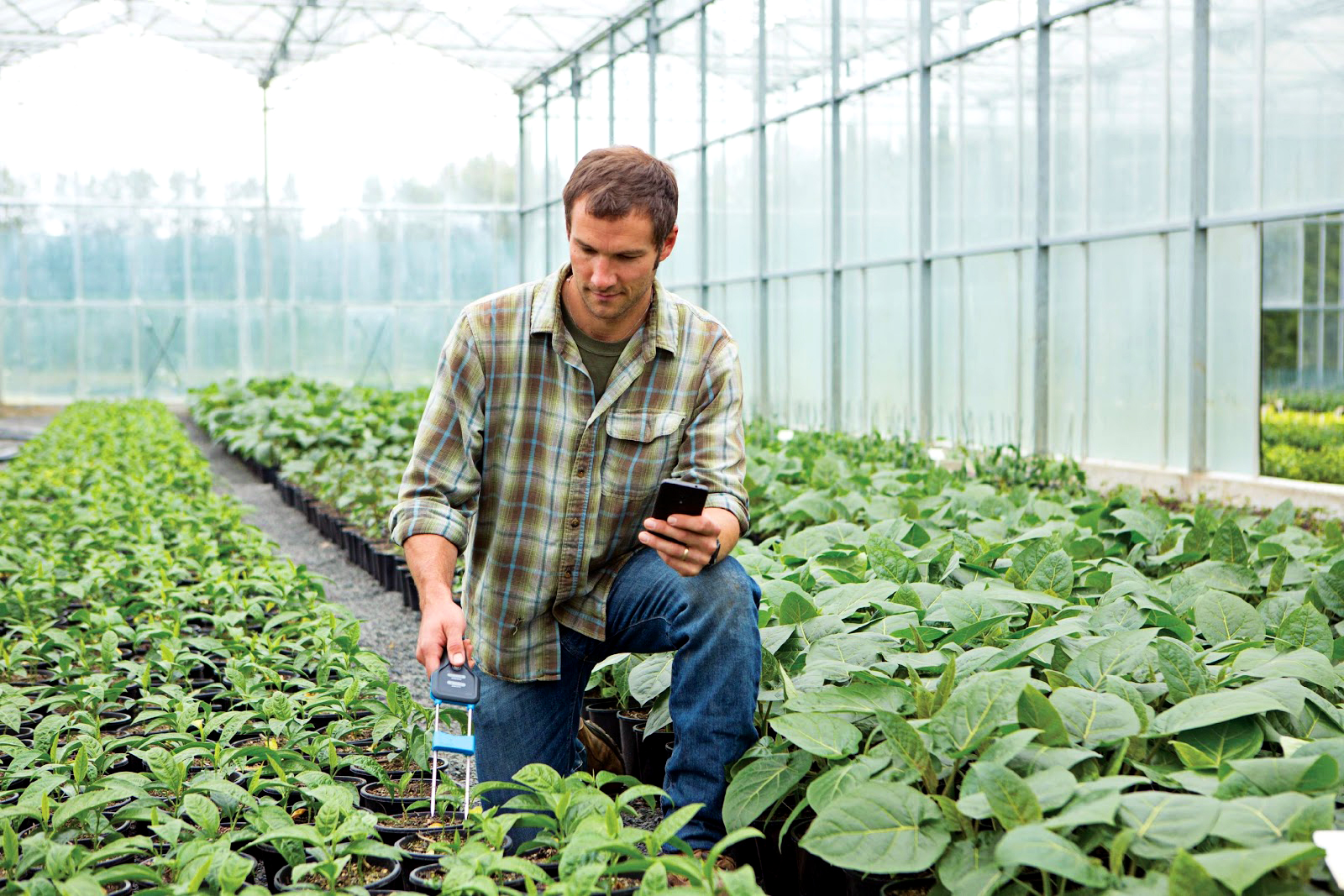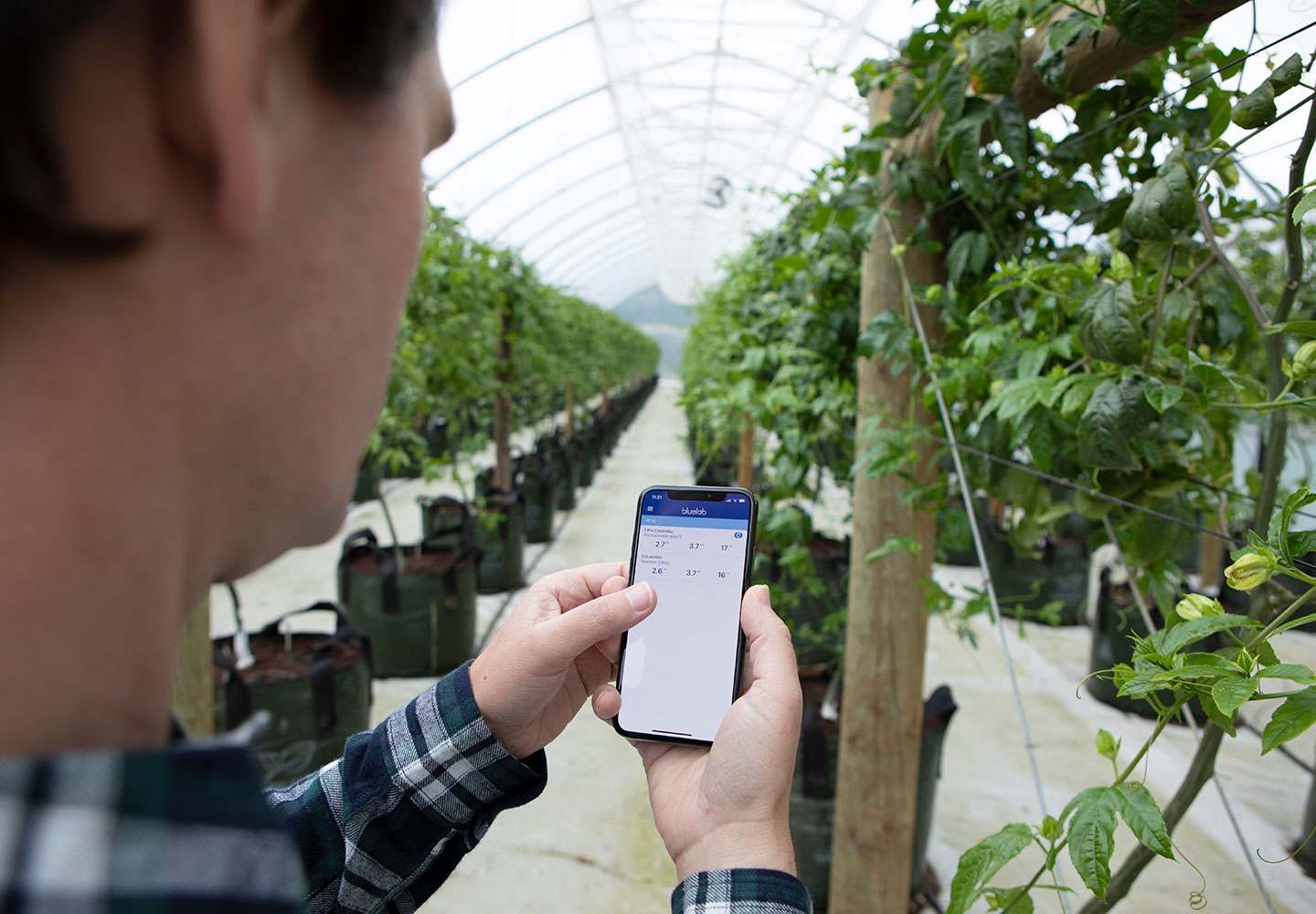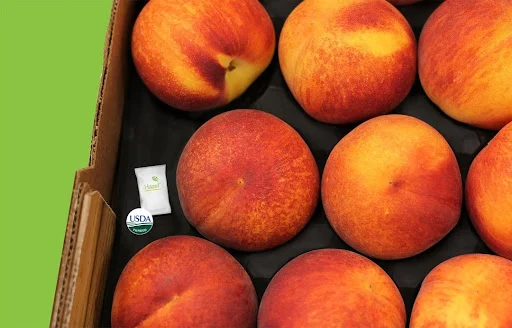Riding the rollercoaster

In January 2020, as news of a mysterious virus in Wuhan began to filter through the airwaves, most Kiwis were yet to grasp the gravity of the emerging pandemic
For Bluelab, however, things were already getting real.
A key supplier to the Tauranga-based business, which manufactures measurement tools and control systems for controlled-environment agriculture, was based in the Chinese city, and was shuttered for lockdown.
With the supply of a critical part cut, the challenges only mounted. International trade shows – a key marketing channel for the business that exports 99% of its product – were cancelled, and sales staff were increasingly unable to leave home to service retail stores.
But Bluelab’s pandemic story isn’t one of doom and gloom.
“We understood early that we needed to activate crisis management straight away, and from there it was the start of a rollercoaster journey – because then the orders kept coming, and coming and coming,” says Bluelab chief product and innovation officer Jono Jones.

Riding the wave
Bluelab had already been riding an impressive growth wave prior to the pandemic, driven by international trends towards plant-based diets and more water-and climate-friendly controlled-environment agricultural systems, such as hydroponic operations.
Traditionally selling through a network of retail distributors, Bluelab had also kicked off a digital and brand transformation to enable more direct relationships with customers. This involved developing ecommerce channels, virtual education and a new website with direct sales functionality.
“When the pandemic hit, food supply chains were being dismantled, so there was this huge movement to ‘grow local’,” explains Jones.
“That led to a boom in demand for our technology, which is positioned for everyone from hobbyists to enterprise growers. And because we had undergone this digital transformation, we could stay relevant and in front of customers wherever they were.”
The increase in online shopping due to the pandemic was evidenced with a significant increase in revenue from Amazon, and Bluelab’s overall revenue rose 88% with staff numbers doubling.
Freeing capacity
Meeting customer demand has also required innovation.
To free up capacity in its manufacturing operation, Bluelab established a new engineering team dedicated to finding ways to build its products more efficiently – using methods that required less time, for example, or fewer or more standardised parts.
The team identified that assembling the core sensing probes in its high-selling conductivity meter took about three days, for example – a process that could potentially be slashed if they could use stainless steel for the electrodes rather than carbon.
However, unsure how the stainless steel would perform in the nutrient-rich environment it would need to operate, the team turned to Callaghan Innovation’s Research and Development (R&D) Solutions division. Home to around 200 of NZ's leading scientists and engineers, it’s dedicated to solving tough technical problems through research and development, and innovation.

Bluelab was able to access scientific expertise to analyse the corrosion behaviour of the stainless steel electrodes in typical solutions, and accelerate testing to look at degradation.
This support gave the business the confidence to make the switch, which Jones reports subsequently reduced the probe’s assembly time by 95%.
Callaghan Innovation’s wide range of scientists meant it could quickly introduce us to a specialist in the material we wanted to investigate, who could answer our technical questions and accelerate testing
“It also meant we could get that product out to market much faster, and divert the resulting saved resource into other areas to help us keep up with demand” says Jones.
Alongside R&D Solutions, Bluelab has accessed a wide range of Callaghan Innovation support over the years, from Innovation Skills programmes such as Lean, to Student Grants, to the agency’s extremely valuable experts and networks.
This summer, with support from R&D Experience Grants, two engineering students will work on projects to free up manufacturing capacity, with a further two respectively focused on hydroponic nutrient research and a Bluetooth integration application.
Future growth
Pioneer Capital and the NZ Superannuation Fund recently bought Oriens Capital’s stake in Bluelab and Callaghan Innovation is continuing to support the business in its next growth phase.
That next frontier, says Jones, is developing a SaaS business model to generate recurring revenue through software and data solutions that solve customer problems in new ways.
Bluelab’s growing software team is currently focused on developing the infrastructure that will sit behind any SaaS offerings, and finding product-market fit.

The journey from developing hardware to software has been supported by tapping into Callaghan Innovation’s SaaS network.
Jones and Bluelab CEO Greg Jarvis were among the Callaghan Innovation-led Kiwi delegation that planned to attend SaaStr Annual in San Jose last year. Despite that trip falling victim to COVID-19 disruption too, Bluelab has continued to engage with the SaaS sector through Callaghan Innovation conferences, webinars and community events.
“Part of it the value has come from being able to connect with people in the sector who are willing to share their journeys, insights and war stories,” says Jones.




